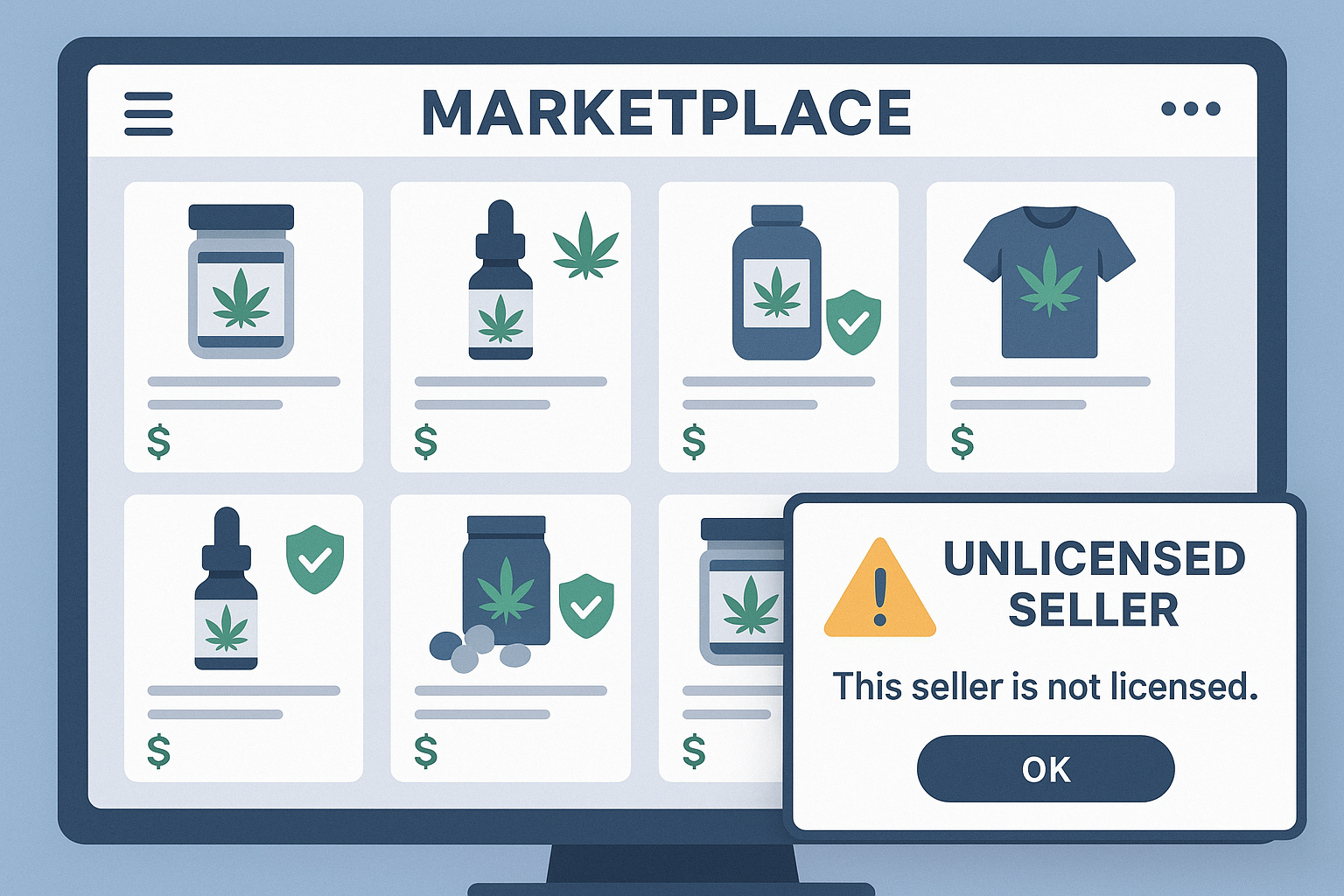
As California’s cannabis and hemp industries continue to mature, regulatory oversight adapts to emerging risks—especially as sales shift steadily online. Now, California SB 378 (2025–2026 legislative session) is poised to enact sweeping requirements for any online marketplace or app facilitating cannabis or hemp transactions. If adopted, SB 378 would change the compliance landscape for e-commerce, delivery services, and mainstream platforms—impacting license verification, reporting obligations, and consumer awareness.
SB 378 aims to fill gaps in online oversight by requiring websites and apps that list or sell cannabis or hemp products—including delivery apps, online marketplaces, and social commerce integrations—to:
These requirements would represent a significant expansion of compliance obligations—especially for platforms that, until now, may have only minimally engaged with regulatory vetting or actively allowed hemp SKUs as standard consumer packaged goods.
SB 378’s core goal is to prevent unlicensed cannabis and illicit hemp products from reaching California consumers via online platforms—shifting some regulatory burden from individual sellers to the marketplaces and delivery services themselves.
If SB 378 passes, “marketplaces” will need:
This is a step-change from today’s status quo, where many platforms simply collect a seller’s self-attestation or ignore hemp compliance altogether. Platforms will need to build and maintain workflow integrations with official regulatory databases, or risk enforcement action.
One of SB 378’s striking aspects is its explicit inclusion of hemp products—not just THC-rich cannabis. Since passage of the federal 2018 Farm Bill, hemp-derived cannabinoids such as CBD, delta-8, and HHC have proliferated across online sales channels, often without much regulatory scrutiny.
SB 378 would require all platforms selling either cannabis or hemp products to:
This closes a gap that many e-commerce engines have previously exploited—assuming that hemp SKUs don’t trigger the same rules as state-licensed cannabis.
A major part of compliance under SB 378 is empowering the public to report potentially illicit product listings. Marketplaces, delivery services, and hosting platforms must:
Many legacy platforms and new e-commerce engines will require major upgrades to support these workflows (not just checkboxes or email addresses).
If enacted, SB 378 touches an array of market players:
Sites like Shopify, WooCommerce integrations, and large social platforms listing cannabis- or hemp-derived products for California consumers will be on the hook.
Prominent delivery services (e.g., Eaze, Weedmaps, Emjay, Dutchie) will need to document real-time license verifications for all third-party sellers and take swift action on flagged entries.
Instagram shops, Facebook Marketplace, Telegram, and even Discord-based e-commerce channels must build these compliance features.
Dispensaries, online stores, and direct-to-consumer brands should expect additional diligence requirements by platforms or risk delisting.
Hemp SKUs—particularly those using novel cannabinoids—will face the same scrutiny as their cannabis counterparts.
The broad definitions in SB 378 ensure most digital platforms cannot simply "opt out" by claiming ignorance or shifting the burden solely to sellers.
While detailed enforcement mechanisms will be established as DCC clarifies the rules, expect:
The DCC and CDPH will gain expanded authority to audit, review logs, and issue violations thanks to the paper trail requirements.
As of mid-2025, SB 378 has cleared several Assembly committees with recommendations for passage. Key events ahead:
For the latest legislative status, the official California Legislative Information tracking page for SB 378 is recommended.
As California sets a new bar for digital cannabis and hemp oversight, proactive compliance now is vital to avoid enforcement headaches later. For continuous legislative tracking, compliance checklists, and integration options, visit CannabisRegulations.ai—the authoritative resource for cannabis business owners, compliance teams, and investors navigating California’s evolving regulatory environment.
Disclaimer: This blog is informational only and does not constitute legal advice. Please consult appropriate professionals or the Department of Cannabis Control for guidance on compliance with California cannabis laws and SB 378.